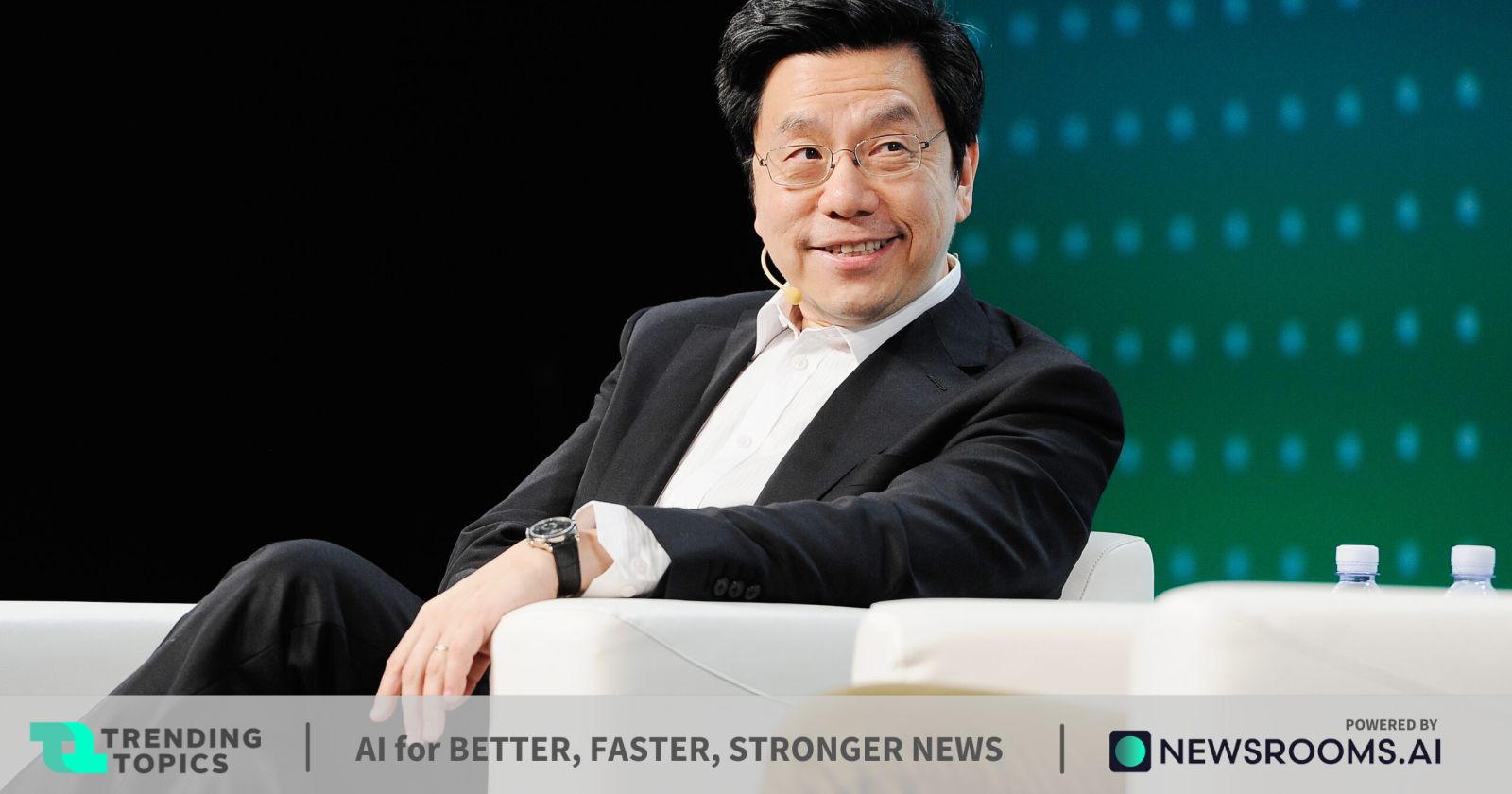











Luminance, a generative AI legal tech company, has raised $40m in a Series B funding round led by March Capital, with participation from National Grid Partners. The funding will be used to support the company's growth in the US market and expand its products to new markets. Luminance has developed a large language model (LLM) that automates contract creation and management. The Luminance LLM can generate, negotiate, and analyze contracts and other legal documents. The company's technology is used by 600 organizations across 70 countries, including Liberty Mutual and Yokogawa. Luminance claims that its AI technology has been used in various firsts for the legal industry, such as the first fully automated negotiation of a contract and reducing the time needed to review evidence in the Old Bailey. The use of generative AI in the legal sector is growing rapidly, and Luminance aims to drive efficiency in the legal industry. According to GlobalData, the global AI market is predicted to be worth over $900bn by 2030 [23005422].
Log10, a company that helps developers build and scale LLM-powered applications, has also recently secured funding. Log10 raised $7.2 million in seed funding in a round led by TQ Ventures and Quiet Capital, with participation from Essence Venture Capital. The funding will be used to enhance Log10's technology and scale its operations. Log10's platform utilizes AI and synthetic data to improve accuracy rates and reduce the time and expense required for manual review and debugging. The company aims to assist developers in creating reliable and accurate AI applications. Log10's AutoFeedback solution enables the scaling of human review of LLM outputs to monitor quality and curate high-quality datasets. The investors of Log10 are optimistic about the company's potential for growth in the AI space. OpenBB CEO Didier Rodrigues Lopes commended Log10 for its ability to quickly respond to customer feedback and improve their product [be7f1cde].
In a recent development, researchers from AWS AI Labs have found that most publicly available LLMs can be easily manipulated into revealing harmful or unethical information. The researchers used a technique called 'projected gradient descent' to bypass the safeguards designed to stop AI systems from answering dangerous or illegal questions. They propose incorporating random noise into audio input as a countermeasure. Hackers can exploit this vulnerability to make LLMs do bad things without needing big data breaches. IBM researchers have also discovered that attackers can manipulate defenders' responses or introduce insecurity within an organization by hypnotizing LLMs. Attacks on AI models are already underway, compromising the training data on which LLMs are based. However, the level of these attacks is unlikely to scale up given that LLMs are self-learning tools [16544157] [a7047637].
The discovery of a model-breaking bug in large language models (LLMs) has raised concerns about AI safety. The bug causes LLMs to produce nonsensical and endless responses when given a specific prompt. The issue was encountered by a researcher while working with LLMs and attempting to report it to various vendors. The lack of response from LLM vendors to address the bug highlights the potential dangers and the need for vendors to take responsibility for the safety and reliability of their products. Researchers are urging LLM vendors to listen to customer feedback and act quickly to address bugs and vulnerabilities [543ccd7d].
Developers seeking to deploy large language model (LLM) applications more safely and quickly now have a robust solution with LangChain Templates and NVIDIA NeMo Guardrails. LangChain has announced a series of new features and updates aimed at enhancing user experience across its various platforms, including LangSmith, LangGraph, and its generative UI applications. The new features include the capability to build generative UI applications using LangChain JavaScript/TypeScript, Next.js, and Python, the ability to view and continue previous chats in the chatbot, new Workspaces in LangSmith for improved collaboration and organization, and variable mapping and data retention-based pricing in LangSmith. LangGraph has partnered with Andrew Ng and Rotem Weiss to offer a free course on building advanced AI agents and supports new integrations with Meta's Llama 3 agents, MistralAI's model and completions LLM, NVIDIA's NIM microservices API, Nomic Embed Vision, and Couchbase vector store. LangChain has also been recognized as Databricks' GenAI Partner of the Year and offers various meetups and learning resources for its community. The company encourages users to explore these new features and integrations to enhance their AI applications [a749795f] [155e6583].
Researchers led by Dr. Le Xie at Texas A&M University are exploring the use of Large Language Models (LLMs) like ChatGPT to help power engineers with daily tasks. They conducted a study to test ChatGPT's capabilities in performing seven power engineering tasks, including correlation analysis, wildfire risk recognition, equipment damage detection, on-site hazard recognition, document analysis, load and price forecasting, and power flow-related tasks. Initially, ChatGPT struggled to generate accurate responses, but the researchers improved its performance by providing specific background information and training it on older data. The team also emphasized the need for LLMs to produce reliable and trustworthy results, especially in the context of safety and resiliency in the power grid. While LLMs have the potential to simplify the job of power engineers, there is still work to be done in this field. The research was detailed in a paper titled 'Exploring the Capabilities and Limitations of Large Language Models in the Electric Energy Sector.' [1764776e].
Chinese startup 01.AI, founded by Kai-Fu Lee, is disrupting the world of LLMs with its language model Yi Large. Ranked 9th overall in the LMSYS Chatbot Arena, Yi Large performs well in Chinese, English, Spanish, French, and German. Based on Google's Transformer technology, Yi Large offers features like a chatbot, APIs for integration, and open-source models. 01.AI aims to develop Artificial General Intelligence (AGI) and has received investment from Sinovation Ventures. The startup was launched in 2023 and released Yi-34B in November of the same year [3ca88ec9] [f21aa241].
Large Chinese firms have accelerated their pace of adopting artificial intelligence (AI) this year, with the number of related contracts surging in the first half of 2024. 81 contracts involving the use of large language models (LLMs) for public projects found successful bidders in the first half of 2024, up from one a year earlier. The number of tender contracts for services involving the use of LLMs more than doubled between the first and second quarters, from 23 in Q1 to 58 in Q2. Chinese technology firms have raced to put out hundreds of their own LLMs and products that run on them since OpenAI's ChatGPT debuted in late 2022. Baidu, Huawei Technologies, and Tencent Holdings were among the providers with successful bids in the first half. Operators in energy, telecoms, finance, and scientific research are the most eager to tap into the potential of LLMs. Zhipu AI and iFlyTek have won the most LLM-related contracts this year at 12 and 10 contracts respectively. The most lucrative contract came from PipeChina, which is paying 152.6 million yuan for LLM-related tech from Taifu Industry. The total value of all 81 contracts is 433 million yuan, with an average of 5.3 million yuan per contract [f21aa241].
Ronin, a gaming company, has introduced Lumiterra, a new play-to-earn MMORPG. Lumiterra is playable now and offers opportunities to earn nonfungible token resources and tokens. The game's primary target audience is Web3 gaming enthusiasts from China and Hong Kong. Lumiterra is a cross-platform web game that combines survival, exploration, and crafting. The game's ecosystem includes in-game products, non-fungible currencies, and Lumi Finance, a decentralized platform. The Lumiterra Closed Beta Test will begin in July 2024 and feature $1 million in rewards. Players can specialize in warfare, gathering, and agriculture. RON will serve as the primary in-game currency during the CBT. Lumiterra's migration to Ronin is a groundbreaking initiative for the organization. The game offers immersive crafting experiences and integrates a decentralized finance platform. Roxanne Williams is a market reporter for CryptoNewsZ [ad50922f].
Silicon Valley-based AI×Web3 startup Jugemu.ai has raised $1 million to democratize access to generative AI. The company has launched its first application, 'Jugemu.ai web3 projects,' which allows users to view detailed information about web3 projects generated by AI, ask AI questions about these projects, and earn points through various interactions. Jugemu.ai aims to launch its L2 blockchain mainnet by the end of 2024. The platform offers a single subscription that provides access to multiple AI models at a lower cost, ensuring data ownership and creating an AI ecosystem through token incentives. Mr. Fukukai of Flickshot has endorsed Jugemu.ai, stating that the company's token incentives and AI community will contribute to creating a safe and efficient environment for AI technology. [ebbadb7b]